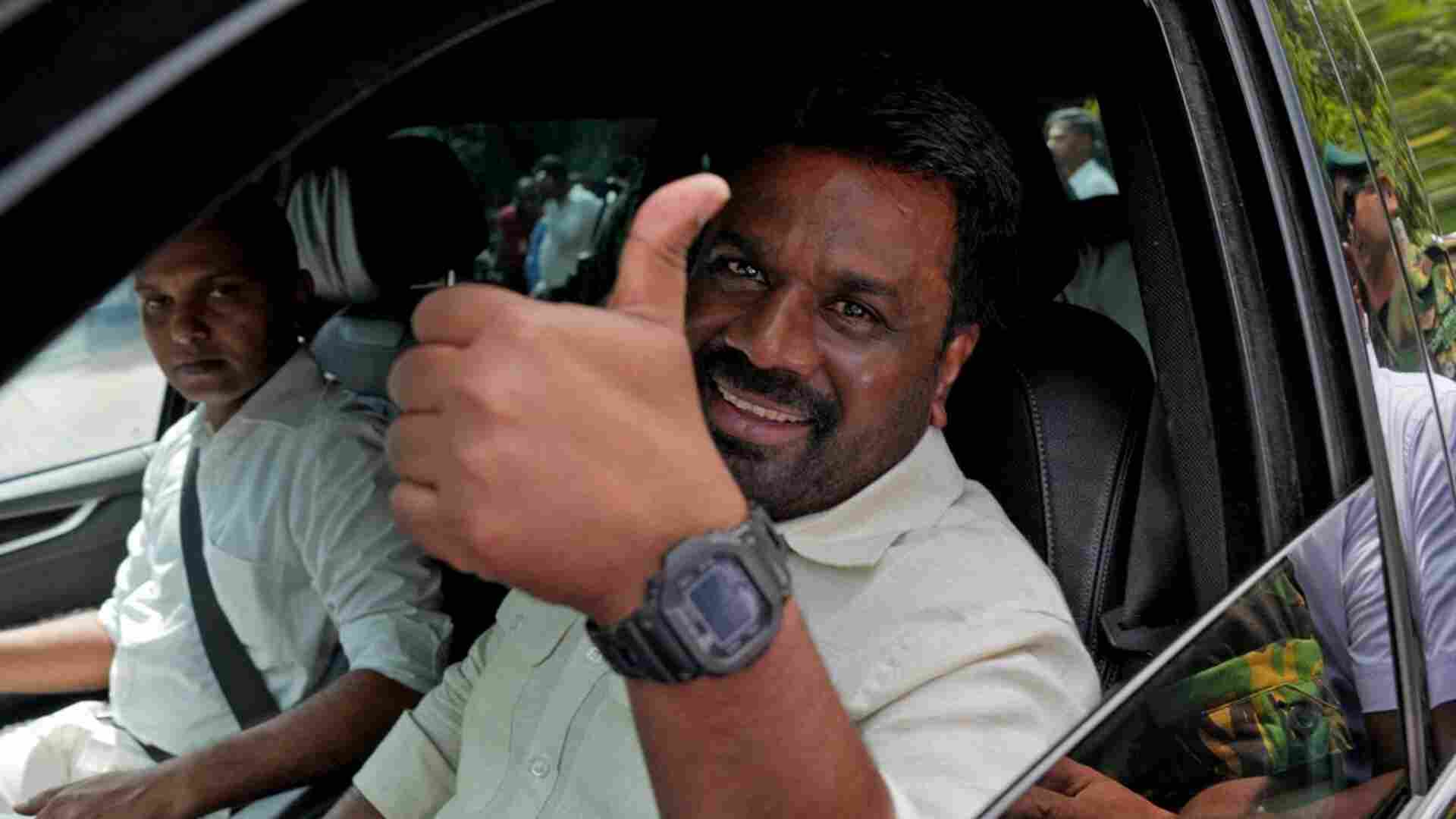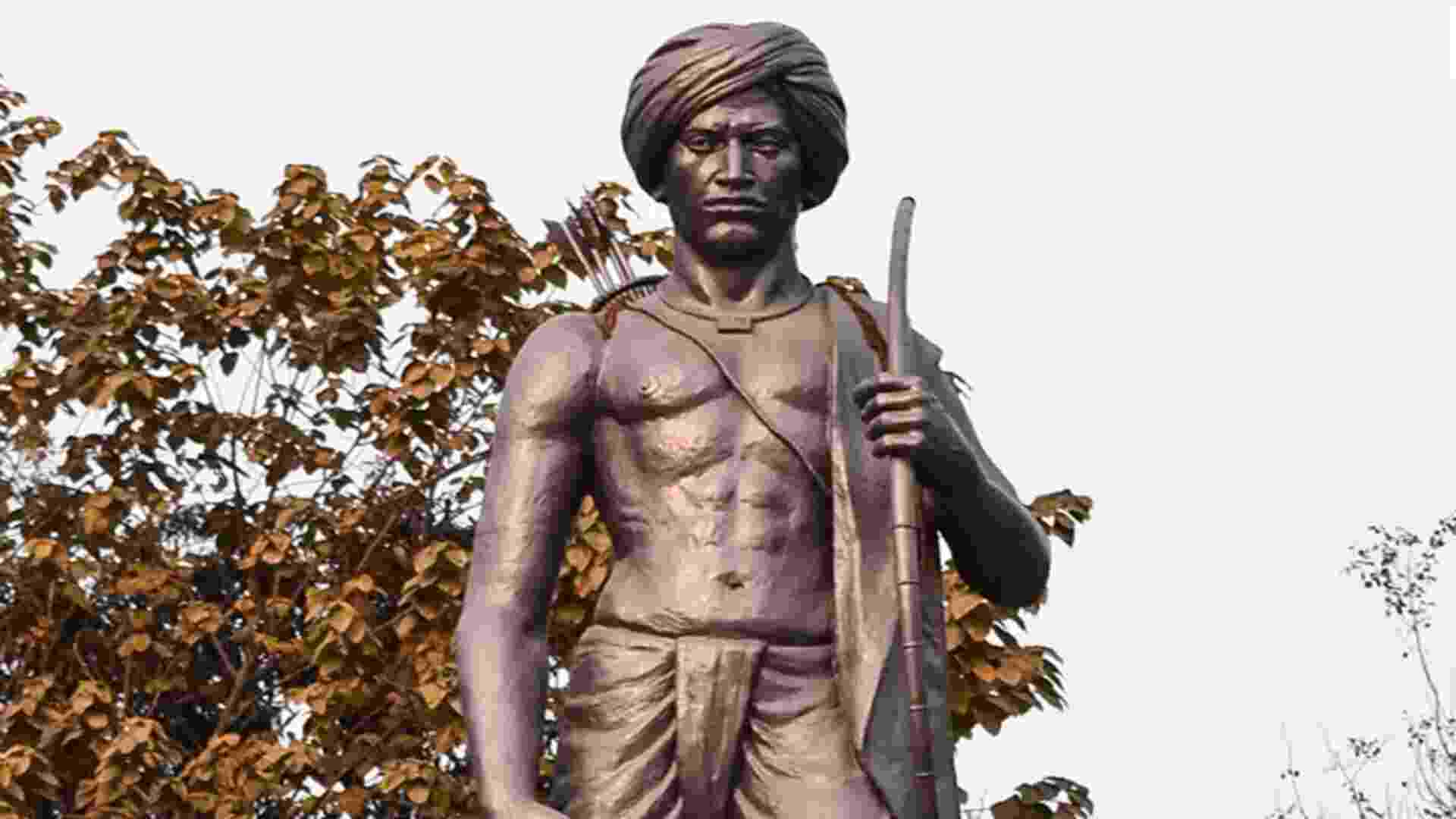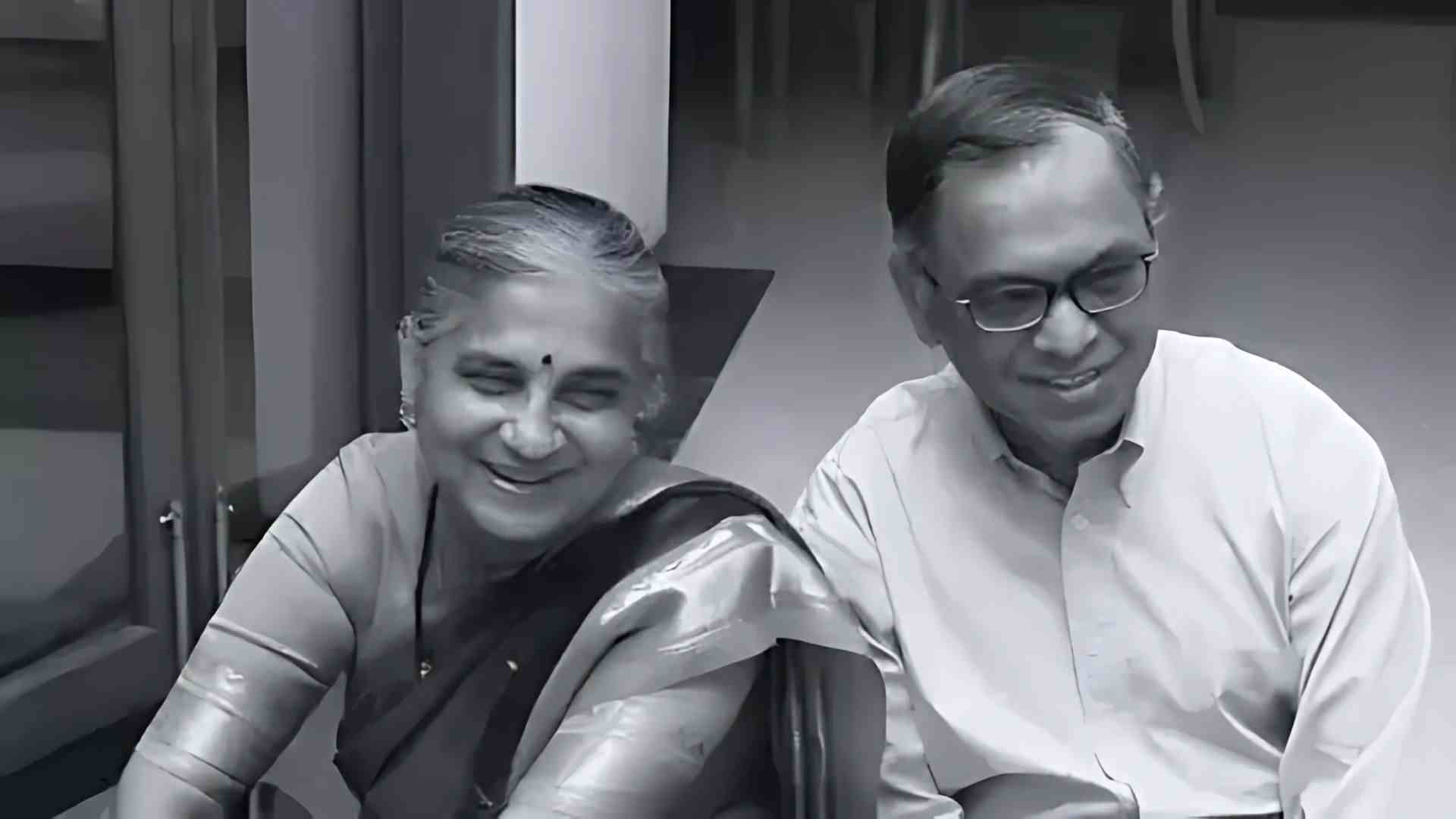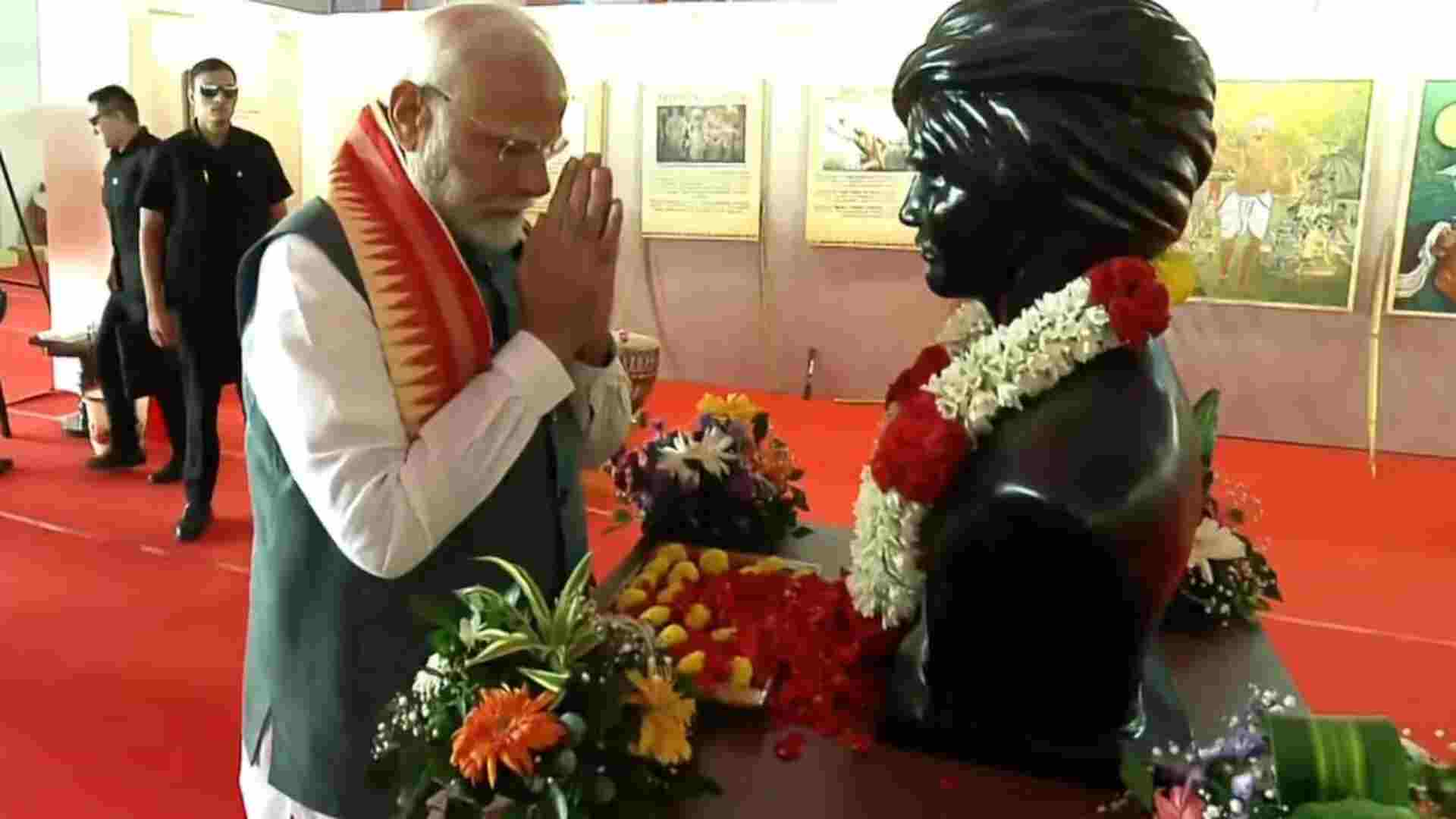
A majority of Muslims in pre-independent India were opposed to two-nation theory and creation of Pakistan, argues a book titled, “Muslims Against Partition” [Pharos Media & Publishing Pvt Ltd]
Author-scholar Shamsul Islam argues that the Muslim League under Mohmmad Ali Jinnah won a bulk of seats in the provisional assembly elections of 1946 as it had support of Muslim elite. The pre-independence India had restricted franchise which excluded masses of peasants, women, majority of small shop-keepers, traders who were not taxpayers, owned property or had high educational qualifications. “Only 28.5 per cent of the adult population of the provinces could vote in the provincial assembly elections of 1946. Economically and socially depressed portions were virtually disfranchised…for example in Bihar, the electorate consists of merely 7.8 per cent of the total population,” Islam writes while rolling out statistics to marshal his argument that the idea of Muslim League being sole representative of Muslims is based on shaky grounds.
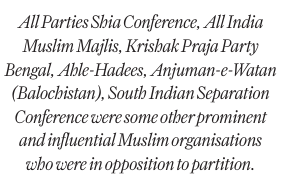
Patriotic Muslims, in spite of having numerical strength, failed for united India’s cause due to their inability to organise masses, Muslim League’s reign of terror[ Muslim League created a quasi military Muslim National Guards, numbering over 3,00,000 in 1931 to instil fear. These “volunteers” physically attacked Maulana Abul kalam Azad, Dr Saifuddin Kitchlew, Maulana Hussain Ahmad Madani, Maulana Hifzur Rahman and many others] and a sustained machination from the British, a section of the Congress and right-wing Hindu radical outfits like the RSS and Hindu Mahasabha. According to the author, the Congress’ biggest crime was in choosing to negotiate with the Muslim League as if it was the only representative of the voice of the Muslims. Mahatma Gandhi too committed a folly of sorts when he addressed Jinnah as “Qaid e Azam” in his correspondence with Muslim League leader.
A majority of Muslim clergy of the pre-independent era were opposed to creation of Pakistan but educated-westernised Muslims like Jinnah and poet Mohammad Iqbal were successful in labelling them as “possessed bishops.” Maulana Hussain Ahmad Madani advanced composite nationalism or “one-nation theory” based on Islamic principles compatible with democracy and secularism, was constantly targeted by Iqbal, Jinnah and other League supporters. Ironically, persons like Jinnah, whose practical life did not manifest any religion and religiosity were able to score over those who served Islam and whose life was a model of righteousness.
Madani’s Jamiat e—Ulema remained bitterly opposed to partition. The All India Momin conference was a massive organisation from northern and eastern India representing backward castes among Muslims, mostly craftsmen, artisans and labourers numbering around 4.5 crore. Its 1943 resolution read, “patriotism and nationalism of the Indian musalmans will never tolerate vivisection of our dear motherland into several hostile states.” But the Muslim League, consisting of upper caste Muslims, Ashrafs, ignored Momin Conference simply because the organisation, in spite of its gigantic size, had few voters in the restricted franchise. Similar was the case of Majlis-e—Ahrar-e-Islam (assembly for freedom of Islam) that stood firmly for united India. Ahrar was crushed by the British for opposing Indian participation in World War II. Between 1939-1943, over 9000 Ahrar members were awarded rigorous imprisonment.
All Parties Shia Conference, All India Muslim Majlis, Krishak Praja Party Bengal, Ahle-Hadees, Anjuman-e-Watan (Balochistan), South Indian Separation Conference were some other prominent and influential Muslim organisations who were in opposition to partition.
Interestingly, throughout the freedom struggle, Urdu language and poetry was a strong tool opposed to divisive politics advanced by Muslim League. But in post independent India, Urdu is often described as a motivating force behind Pakistan. Sample this couplet by poet Shamim Karhani written in 1942, “Humko batlao tau kiya matlab hai Pakistan ka, jis jagah iss waqt mussalman hain, majis hae kya who jagah? Nesh-e-Tohmat se tere, Chishti kaa seena chak hai, jald batla kiya zameen ajmer keen a-pak hae” [Tell me what does Pakistan mean? Is this land, where we Muslims are, any less pure? Your slur has wounded Chishti’s breast; Quickly tell me, is Ajmer impure?”]
Professor Harbans Mukhia, eminent historian from Jawaharlal Nehru University (JNU), backs Shamul Islam’s formulations to the hilt is in foreword. According to professor Mukhia, a section of the Congress and British rulers helped Jinnah achieve his goal. The two-nation theory, Mukhia points out, was reinforced again and again by many national icons of pre-independent era such as Pandit Madan Mohan Malviya, Lala Lajpat Rai, V D Savarkar, M S Golwalkar, C Rajagopalachari and Sardar Vallabh Bhai Patel.
The real strength of Shamsul Islam’s work is evidence based arguments and focus on otherwise little known Allah Bakhsh who fought a valiant battle against the Muslim League. Bakhsh, a former chief minister of Sindh province had successfully organized a mammoth Azad Muslim Conference in 1940 to counter Jinnah’s Pakistan scheme. The English media press, which was largely in control of the British, had accepted that it was the most representative gathering of Indian Muslims belonging to the lower and working classes. Wilfred Cantwell Smith, in his book, “Modern Islam in India: A Social Analysis, Victor G. Ltd London 1946 wrote on page 231, “….there was no doubt that these delegates [Azad Muslim Conference] represented a majority of India’s Muslims. ”
However, by 1943, Bakhsh was killed, allegedly by League goons.

